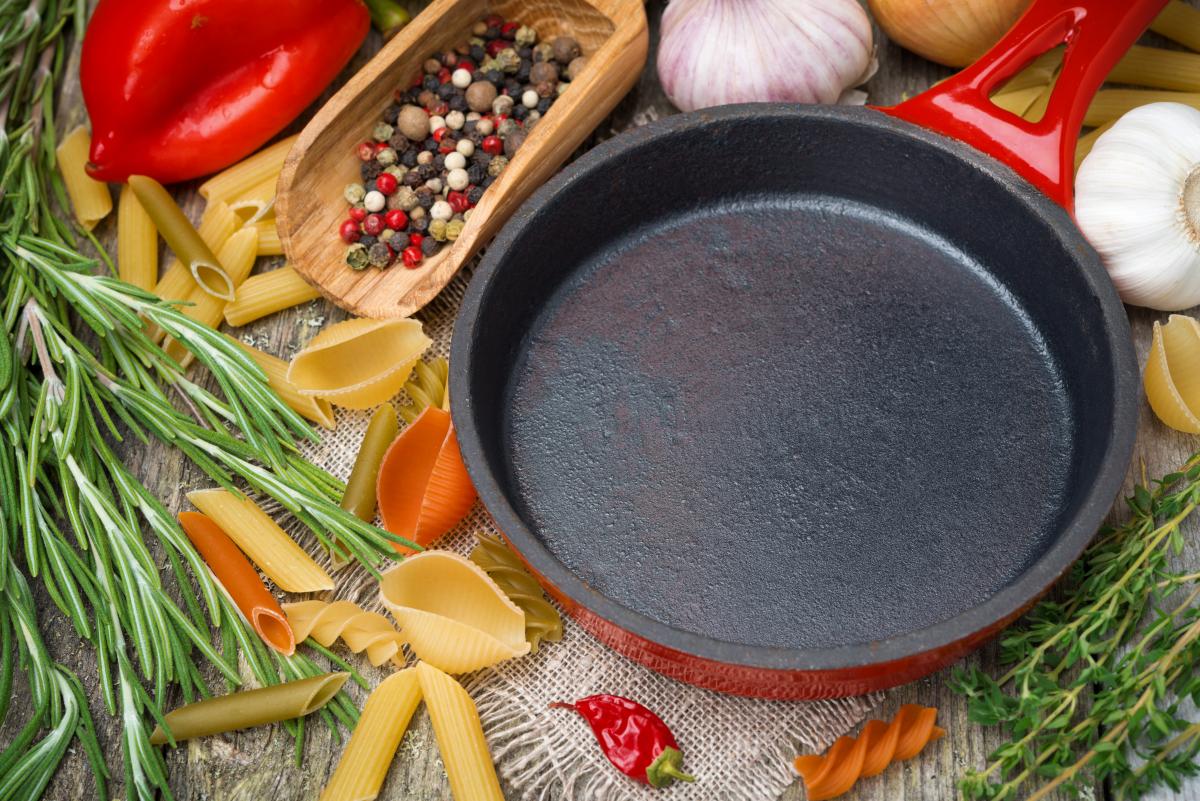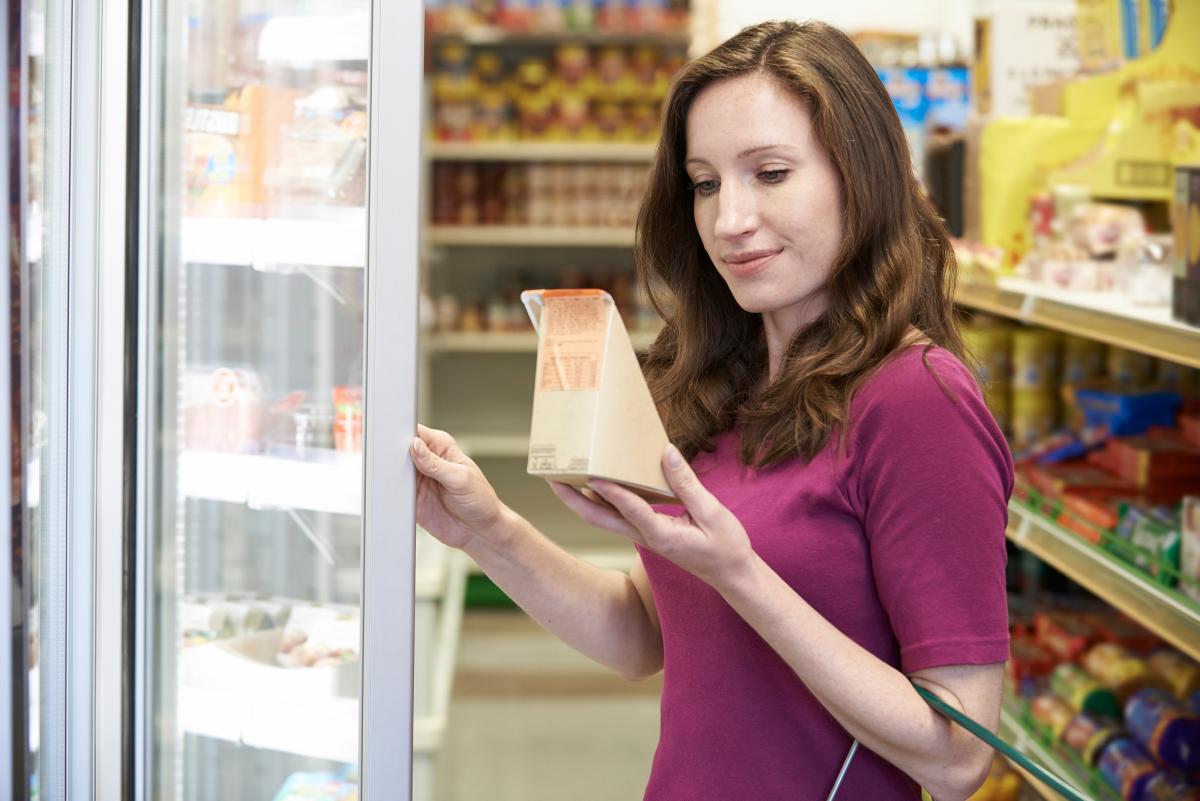Does the prospect of doing your first vegan food shop seem overwhelming? Elizabeth Emery teaches new vegans how to tackle the weekly shop like a pro.
I often get asked about how I manage to cook regularly and make tasty vegan meals throughout the week, and the answer is that it's all in the shopping! Whether they're fresh, frozen or dried I always make sure I have the store cupboard essentials on hand so that I can whip up a meal in no time!
If you're new to plant-based eating and are finding the whole process of cooking nourishing meals a little daunting, I hope this introductory post will help. Below, I've listed my top tips for shopping, followed by my general shopping list - this contains items I usually have in my pantry, fridge or freezer and items that most of my recipes are made from. Dried and frozen items really are the key here - it doesn't matter if you've run out of fresh vegetables, if you've got some dry pasta, a tin of crushed tomatoes and some frozen spinach you can make a healthy and tasty meal.

The list isn't exhaustive, and feel free to buy as much or as little from it as you like, as we all have different tastes. When it comes to dry goods, you definitely don't need to buy all these at once - it's taken me a long time to build this amount up! By all means, stock up on them gradually when you're doing your weekly shop, and eventually, you'll find you've built up quite a store.
Top 5 Shopping Tips
1. Shop less
I recommend doing a big shop once or twice a week, rather than popping out whenever you need ingredients. It makes you more efficient and takes up a lot less time during the week.
2. Use a list
Write a rough meal plan for the week and create a shopping list from that. Then stick to it! I find if I decide what meals I'm going to make in advance it's much easier to plan what ingredients I need to buy. No more ending up with that mouldy bunch of radishes I just couldn't figure out a use for!
3. Don't shop hungry
It goes hand in hand with point 2, but don't shop on an empty stomach. When you're hungry EVERYTHING in the supermarket looks appealing and you'll put all kinds of stuff in your basket. If you shop after eating you'll have a clear head and won't be so tempted by #allthesnacks.

4. Buy good quality
There's no denying it, food can be pricey. It's tempting to buy the cheapest ingredients possible but in my experience, you get what you pay for and it's worth spending a little more on a few items. Take coconut milk: buy the cheapest and you'll end up with a watery liquid that doesn't taste of much, but buy the best quality you can find and it will transform dishes like stews, curries and even ice cream into creamy deliciousness!
5. Shop around
It changes from country to country, but in Canada the prices of food can vary wildly. Organic bananas range from $0.59 per lb to $1.29, depending on the store. It's a big difference, but the lesson is this: shop around for the ingredients you buy regularly. You'll save a lot of money if you get to know your local shops and learn what to buy from where.
Shopping List
Fresh
- Greens - kale, spinach, chard etc.
- Bananas
- Apples or pears
- Celery
- Cucumber
- Peppers - I love red bell peppers as they're so high in vitamin C
- Lemons and limes - for salad dressings and to add to smoothies and juices
- Tomatoes
- Red cabbage
- Herbs - parsley, basil, mint etc.
- Berries - strawberries, blueberries, raspberries (anything in season)
- Avocados
- Onions
- Carrots
- Beets
- Tofu
- Hummus
- Vegan cheese
- Coconut yoghurt
- Superfood powders - chlorella, spirulina, maca, protein powders etc.
Frozen
- Berries - raspberries, blueberries, strawberries, blackberries etc.
- Beans - chickpeas, black beans, adzuki etc. (I like to cook big batches and freeze them)
- Frozen veggies - spinach, peas, sweetcorn
- Bread (because who can get through a whole loaf without it going off?!)
- Good quality veggie sausages and burgers
- Miso paste
Dry
- Tinned beans
- Dried lentils
- Pasta and noodles
- Whole grains - brown rice, quinoa, millet, teff, wild rice etc.
- Crushed Tinned Tomatoes
- Sundried tomatoes
- Herbs and spices - turmeric, cumin, chilli powder, garlic powder etc.
- Good quality sea salt and black pepper
- Vegetable stock cubes
- Garlic
- Oils - olive, coconut, avocado, coconut butter/manna etc.
- Soy sauce, tamari, Braggs Soy Seasoning
- Vinegar - apple cider and balsamic
- Seeds and nuts - chia, hemp, flax, almonds, walnuts, cashews, pumpkin seeds etc.
- Dried fruit - goji berries, raisins, apricots, prunes, figs etc.
- Nut and seed butters - almond, peanut, sunflower, hazelnut etc.
- Dessicated or ribboned coconut
- Sundried tomatoes
- Nutritional yeast
- Flours - chickpea, brown rice, buckwheat etc.
- Baking ingredients - baking soda, vanilla essence, xanthan gum etc.
- Rolled oats
- Sweeteners - maple syrup, coconut nectar, coconut sugar, agave
- Dark chocolate, cacao/cocoa powder and cacao nibs
- Seaweed - nori, kelp, kelp noodles, dulse flakes
Elizabeth Emery is a food blogger, recipe developer and writer. Her blog Vancouver with Love focuses on all things vegan, from recipes to travel and lifestyle tips. She is based in Vancouver, BC.
The views expressed by our bloggers are not necessarily the views of The Vegan Society.

